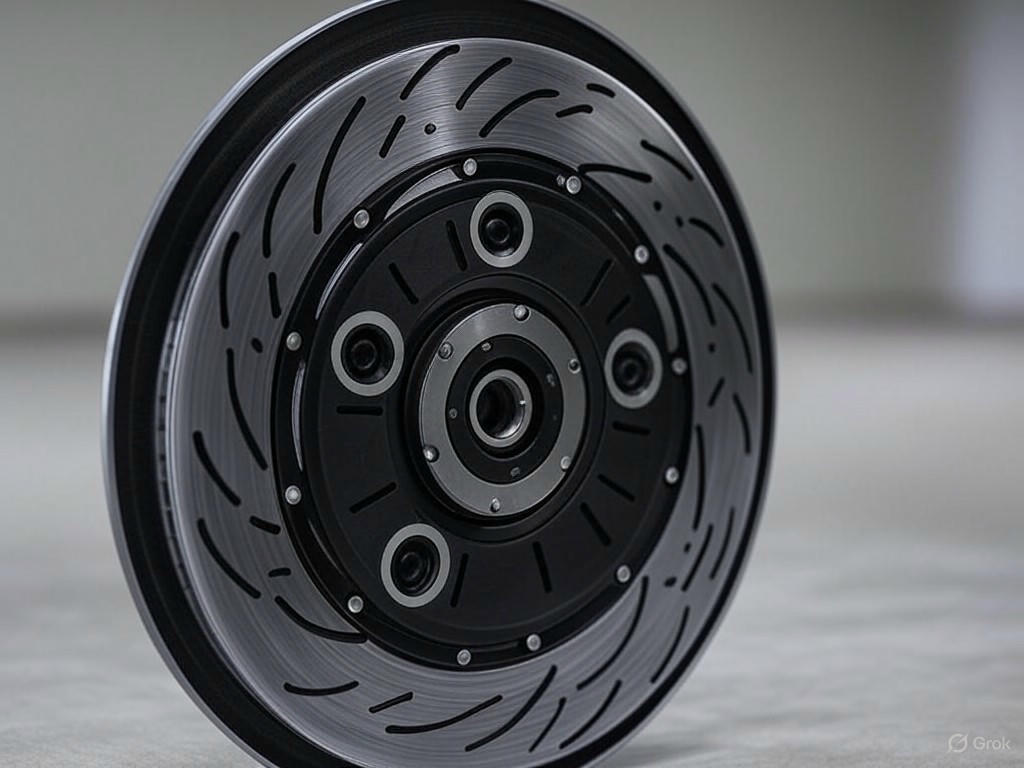
In a significant development for the automotive industry, Italian brake manufacturer Brembo has unveiled its innovative Greentell set, a breakthrough technology that reduces brake dust emissions by up to 90%.
This advancement comes at a crucial time as the European Union prepares to implement stricter regulations on brake particulate emissions starting in 2026.
The Technology Behind Greentell
Brembo’s Greentell set, which consists of newly designed discs and pads, represents years of research and development in braking systems. The name itself is a fusion of “GREEN” and “INTELLIGENCE,” highlighting the dual focus on environmental impact reduction and technological innovation. Beyond merely reducing particulate emissions, the system offers superior performance characteristics including increased durability and enhanced corrosion resistance.
“At Brembo, we don’t stop at following regulations and the law. We go beyond. We do our best to anticipate and even exceed customer needs,” said Daniele Schillaci, CEO of Brembo, during the product’s unveiling at Auto Shanghai 2025 in April.
The technology has been designed with versatility in mind, making it suitable for all vehicle types from electric vehicles to traditional combustion engines, and from premium cars to light commercial vehicles.
Environmental Impact
The environmental benefits of the Greentell system are substantial. According to Brembo, the new braking system reduces environmental impact by up to 85% compared to conventional systems, slashing brake dust emissions by approximately 90%. This represents a significant step forward in addressing non-exhaust emissions from vehicles, an increasingly important environmental concern as the industry shifts toward electrification.
Brake dust, composed of metal particles and other materials that wear off during braking, contributes significantly to urban air pollution. Unlike exhaust emissions, which have been heavily regulated and reduced through catalytic converters and other technologies, brake dust has remained a persistent environmental challenge.
Regulatory Compliance
Brembo’s timing is strategic. The European Union is set to implement more stringent regulations on brake particulate emissions in 2026, and the Greentell system positions Brembo ahead of these regulatory changes. This proactive approach allows the company to not only ensure compliance but to establish itself as a leader in environmentally conscious braking technology.
Industry Trends and Previous Initiatives
This is not Brembo’s first foray into eco-friendly braking solutions. In October 2023, the company launched the Brembo Beyond Greenance Kit, specifically engineered for light commercial vehicles. That solution achieved an 83% reduction in PM10 and 80% reduction in PM2.5 particulate emissions, while also tripling the expected lifetime of brake discs.
Brembo has also been involved in Project Cobra, a partnership with the Mario Negri institute, Italcementi, and Connecting Ambition. This initiative focuses on replacing traditional phenolic resins in brake pads with cement-based materials to reduce particulate emissions and environmental impact during both braking and manufacturing.
Market Implications
As the automotive industry continues its shift toward electrification and autonomous driving, braking systems must evolve to meet new challenges and requirements. Brembo’s innovations in reducing particulate emissions position the company favorably in this changing landscape.
For fleet operators and commercial vehicle owners, the extended durability of these advanced braking systems translates to significant cost savings over a vehicle’s lifetime. Meanwhile, for manufacturers, Brembo’s technology offers a ready solution to upcoming regulatory challenges.
The Greentell set represents a significant step forward in braking technology, addressing both environmental concerns and performance requirements in a single innovative package. As regulatory pressures increase and consumer awareness of non-exhaust emissions grows, such technologies are likely to become increasingly important in the automotive industry.
